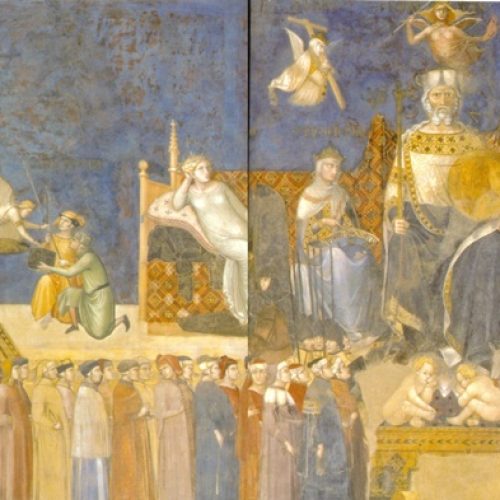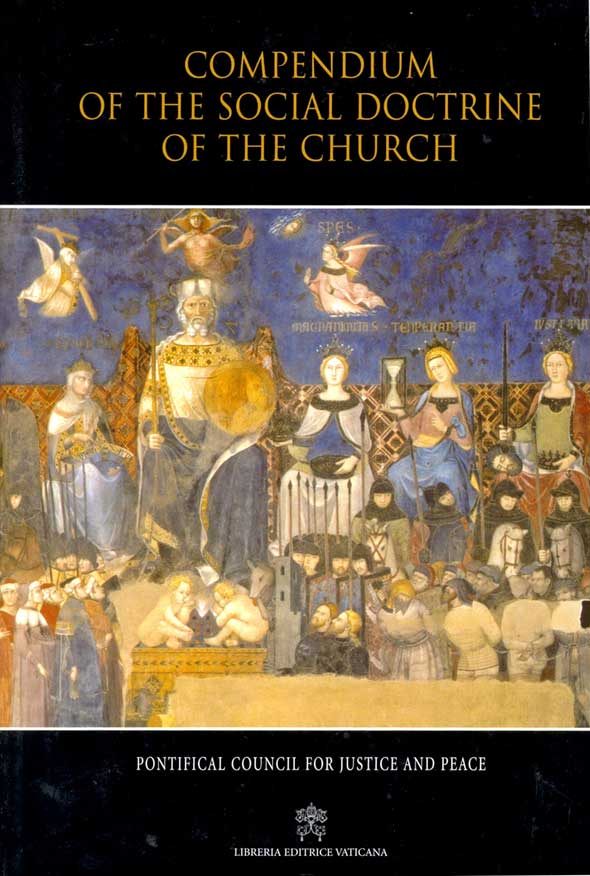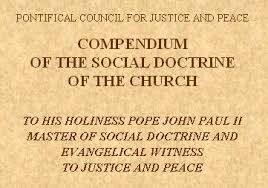I’ve summarized each longer paragraph of the Compendium below for quick consumption. Starting with Chapter 6 “Human Work” and Chapter 7 – “Economic Life”. Each section of the chapters will be in separate posts.
The Compendium of the Social Doctrine of the Church
HUMAN WORK
I. BIBLICAL ASPECTS
a. The duty to cultivate and care for the earth
- 255. Our duty is to “cultivate and care for” (Gen 2:15) the goods (the world) created by God. These goods were not created by us, but have been received by us as a precious gift that the Creator has placed under our responsibility.
256. The prohibition to eat “of the tree of the knowledge of good and evil” (Gen 2:17) reminds us that we have received everything as a gift and that we continue to be a creature and not the Creator. - 257. Work is honorable because it is a source of riches or at least for a decent life. We must resist the temptation of making an idol of work, for the ultimate and definitive meaning of life is not to be found in work but in God who is the origin of life and the final goal of man.
- 258. The apex of biblical teaching on work is the commandment of the Sabbath rest. This rest gives us the possibility to remember and experience anew God’s work, from Creation to Redemption, to recognize themselves as His work (cf. Eph 2:10), and to give thanks for their lives and for their subsistence to Him who is their author.
b. Jesus, a man of work
- 259. In his preaching, Jesus teaches that we should appreciate work. He himself, having “become like us in all things, devoted most of the years of his life on earth to manual work at the carpenter’s bench” in the workshop of Joseph.
- 260. In his preaching, Jesus teaches man not to be enslaved by work. Before all else, we must be concerned about our soul; gaining the whole world is not the purpose of our life (cf. Mk 8:36) nor should it be a source of anxiety.
- 261. “The Sabbath was made for man, not man for the Sabbath” (Mk 2:27). By healing people on this day of rest, he (Jesus) wishes to show that the Sabbath is his, because he is truly the Son of God, and that it is the day on which men should dedicate themselves to God and to others. Freeing people from evil, practising brotherhood and sharing: these give to work its noblest meaning, that which allows humanity to set out on the path to the eternal Sabbath.
- 262. Human activity aimed at enhancing and transforming the universe can and must unleash the perfections which find their origin and model in the uncreated Word.
- 263. Those who put up with the difficult rigours of work in union with Jesus cooperate, in a certain sense, with the Son of God in his work of redemption and show that they are disciples of Christ bearing his cross, every day, in the activity they are called to do. In this perspective, work can be considered a means of sanctification.
c. The duty to work
- 264. The awareness that “the form of this world is passing away” (1 Cor 7:31) does not excuse us from being involved in the world, and even less from work (cf. 2 Thes 3:7-15), which is an integral part of the human condition, although not the only purpose of life. No Christian, in light of the fact that he belongs to a united and fraternal community, should feel that he has the right not to work and to live at the expense of others.
- 265. The Fathers of the Church do not consider work as an “opus servile” (a slave-like duty) — although the culture of their day maintained precisely that such was the case — but always as an “opus humanum” (work worthy of God), and they tend to hold all its various expressions in honor. By means of work, man governs the world with God.
- 266. By our work and industriousness, we — who have a share in the divine art and wisdom — makes creation, the cosmos already ordered by the Father, more beautiful.





